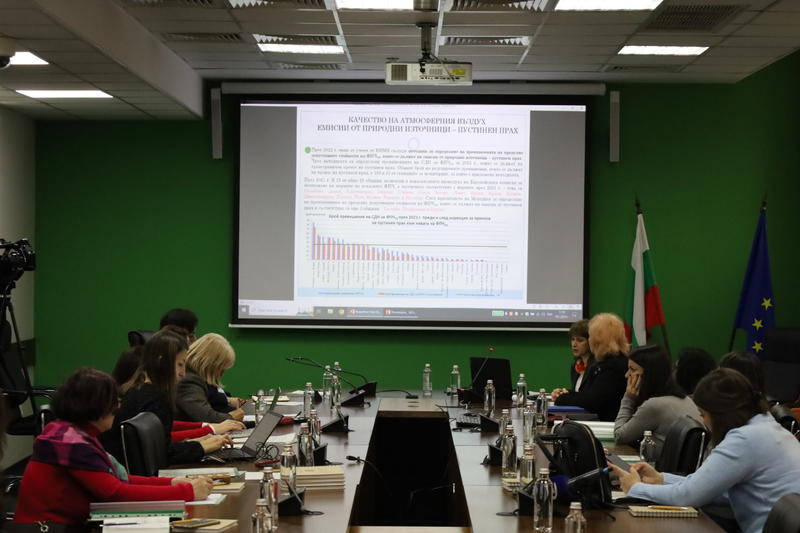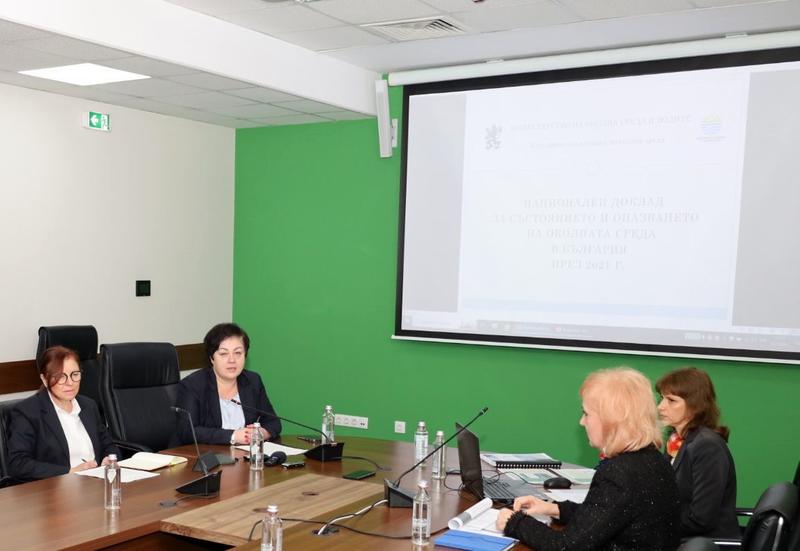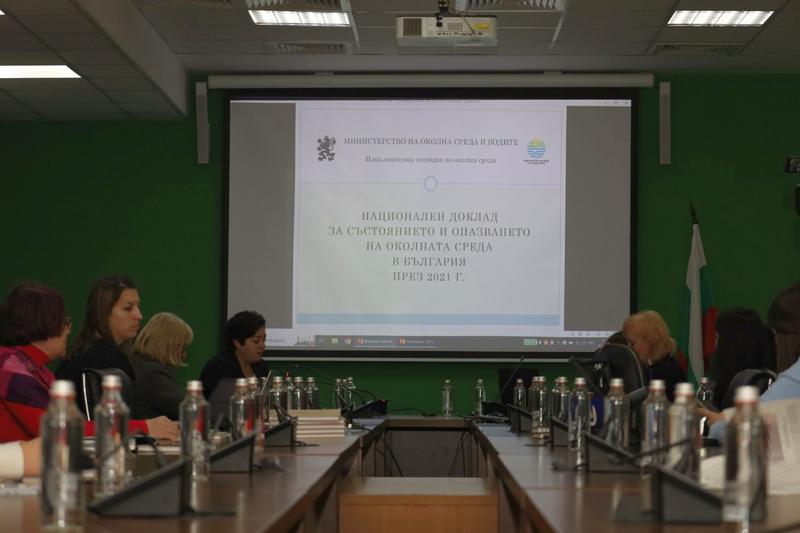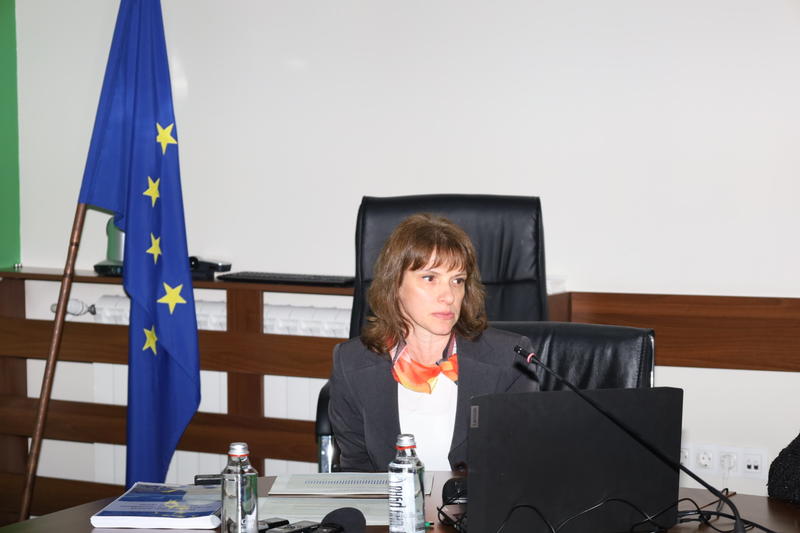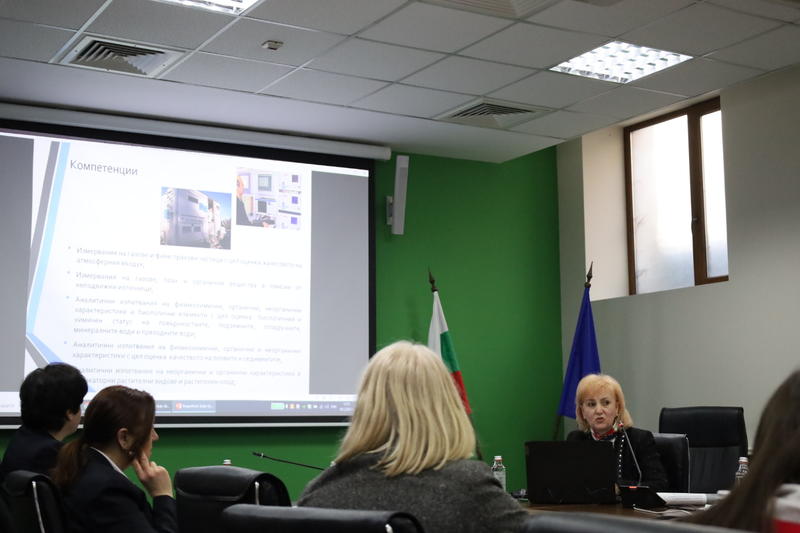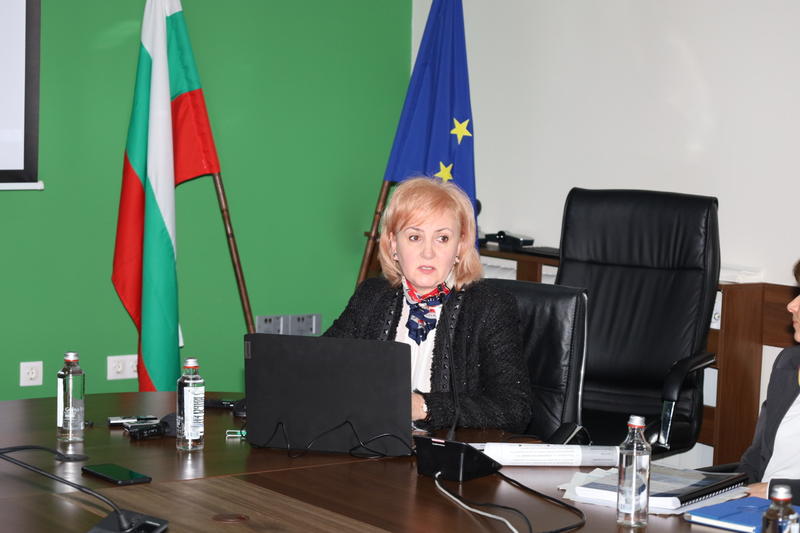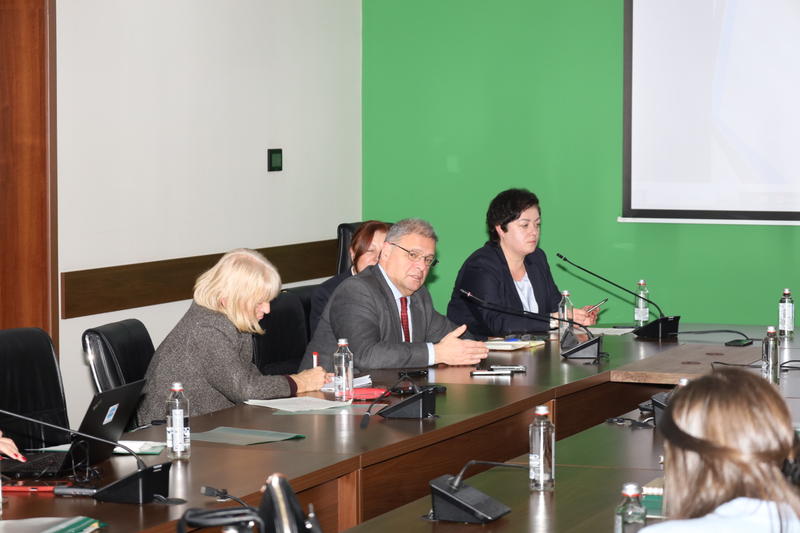The National Environmental Status Report shows positive trends in the long term
18 Jan, 2024 | 15:53A team of the Executive Environment Agency publicly presented the National Environmental Status and Protection Report 2021. The document was adopted by the Council of Ministers in July last year. It is prepared in accordance with the requirements of the Environmental Protection Act, based on analyses and assessment of indicators for a time period of 18 months prior to the year of its adoption. It is intended to inform the public and state institutions about the state of and risks to the environment and natural resources, as well as about the degree of effectiveness and appropriateness of the environmental policy carried out.
The report includes 16 sections covering the main environmental areas. It formulates "key questions" of public interest, it presents the indicators and assessment methodologies used, the sources of information and the reference documents through which the answers are sought. Indicators are assessed by time period and trends and conclusions are drawn, forming 'key messages' on the relevant environmental topics.
The document identifies priority directions to focus national and local policy efforts. Among the more important of these are a steady increase in household waste recycling rates, carbon reduction as part of environmental responsibility in the energy sector and a focus on local air quality policies.
Minister Julian Popov assessed as positive the overall trends for environmental cleanliness in the long term, focusing on the efforts to turn waste into a resource in circular economy systems. In 2021, the amount of municipal waste generated will decrease by 25% compared to 2010. The ten-year trend shows that, at the national level, household waste recycling rates are steadily increasing. Recycled materials recovered in the country's economy increased from 1.80% in 2011 to 4.90% in 2021. Minister Popov outlined two targets for progress on waste - the introduction of a deposit system and the polluter pays principle.
The public presentation of the report was attended by representatives of state institutions and scientific units from the inter-ministerial working group for its preparation. Other main trends in the state of the environment in our country, comparable to the assessments at European level, were also highlighted:
For the period 1988-2021, emissions of the main greenhouse gases have a decreasing trend. The number of active wastewater treatment plants in the country has been more than doubled from 78 in 2010 to 176 in 2021.
In 2021, three new to science plant species endemic to Bulgaria from Rila, Pirin and Vitosha were published, testifying to the important role of high mountains as active formative foci in the Bulgarian flora. A long-term trend for increasing the total area of forest areas has also been established.
Bulgaria has met its emission commitments for sulphur dioxide, nitrogen oxides, non-methane volatile organic compounds and fine particulate matter (PM2.5) for 2021. Compared to previous years, measured concentrations of fine particulate matter (PM10) have decreased and fewer exceedances of the standard have been recorded.
On improving air quality, Minister Popov called for the electrification of urban transport, including taxis and courier vehicles. He said if municipalities do more to electrify transport in cities, then a "critical mass will be created to reverse the trend."
A summary of the National Environmental Status and Protection Report 2021 can be found HERE.
The full text of the report is published on the website of the Executive Environment Agency at: https://eea.government.bg/bg/soer/2023
The Executive Environment Agency (EEA) is an administration under the Minister of Environment and Water for carrying out management, coordination and information functions related to monitoring and protection of the environment in Bulgaria. It designs and manages the National Environmental Monitoring System and information on the status of environmental components and factors for the whole country. The Agency is a National Focal Point of the European Environment Agency (EEA) and a member of the EPA Network.
